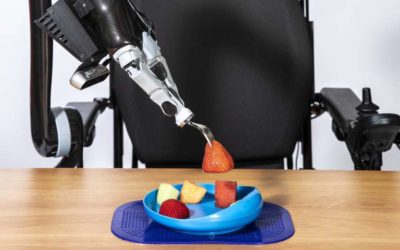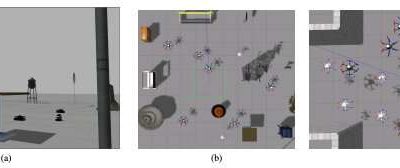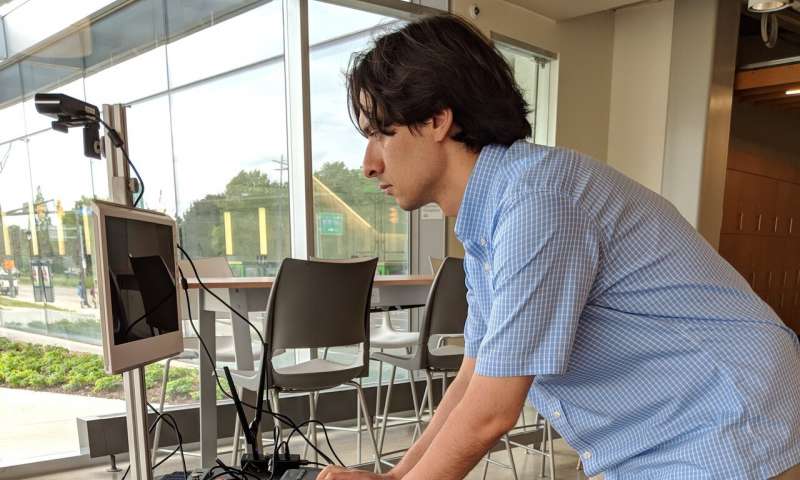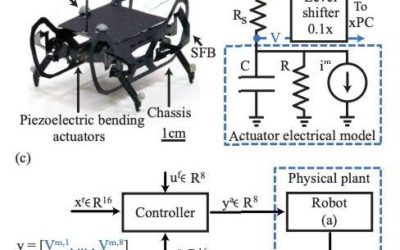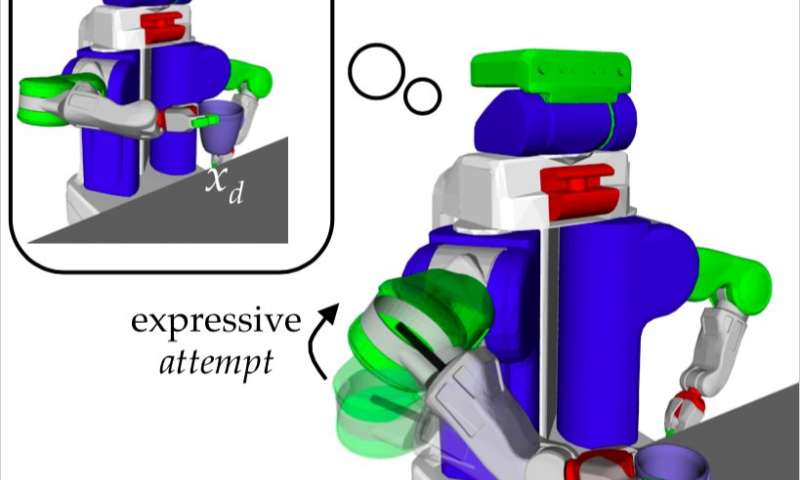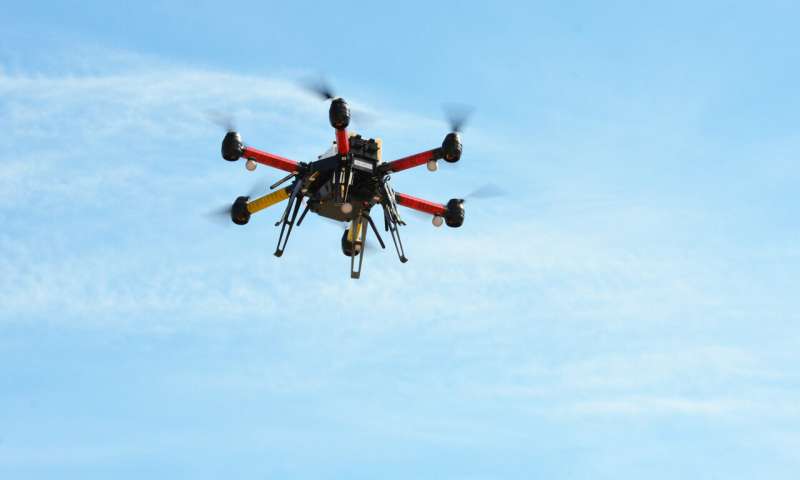According to a survey released by the U.S. Census Bureau, around 12.3 million Americans require assistance with activities of daily living (ADLs) or instrumental activities of daily living (IADLs), one of which is feeding. Robots could be of great help to people...
Robotics
A decentralized trajectory generation algorithm for multi-robot systems
Researchers at the SRM Institute of Science and Technology in India have recently developed a decentralized trajectory generation algorithm for multi-agent systems. Their algorithm, presented in a paper pre-published on arXiv, can generate collision-free trajectories...
A dialogue system to enhance goal-oriented human-robot interactions
Researchers at SUNY Binghamton, Cleveland State University and the University of Washington have recently developed a new dialogue system that could improve human-robot interactions. This system, presented in a paper pre-published on arXiv, is designed to learn...
A face-following robot arm with emotion detection
Researchers at Universitat Autònoma de Barcelona (UAB) have recently developed a face-following robotic arm with emotion detection inspired by Pixar Animation Studios' Luxo Jr. lamp. This robot was presented by Vernon Stanley Albayeros Duarte, a computer science...
A framework to estimate and control leg trajectories of a quadrupedal microrobot
A team of researchers at Harvard University and Wyss Institute for Biologically Inspired Engineering has recently developed a computationally efficient framework for the estimation and control of leg trajectories on a quadrupedal microrobot. Their approach, outlined...
A friction reduction system for deformable robotic fingertips
Researchers at Kanazawa University have recently developed a friction reduction system based on a lubricating effect, which could have interesting soft robotics applications. Their system, presented in a paper published in Taylor & Francis' Advanced Robotics journal,...
A new method to enable robust locomotion in a quadruped robot
One of the key challenges for robotics research is the development of effective and resilient control systems, which allow robots to navigate a variety of environments and deal with unexpected events. Researchers at the University of Oslo have recently developed an...
Enhancing the locomotion of small robots with microwheels
Microbots could have several useful applications, particularly within biomedical and healthcare settings. For instance, due to their small size, these small machines could be inserted within the human body, allowing doctors to remotely carry out exams or operate...
Autonomous visual inspection of large-scale infrastructures using micro aerial vehicles (MAVs)
A team of researchers at Luleå University of Technology, in Sweden, has developed a new framework for performing visual inspections of large 3-D infrastructures using fully autonomous micro aerial vehicles (MAVs). In their paper, pre-published on arXiv, they introduce...
Researchers explore interactions between preschoolers and robotic partners
The relationship between humans and robots has become the focus of an increasing number of research studies, in light of the approaching integration of robots within a variety of fields, including professional and educational contexts. An international and...

